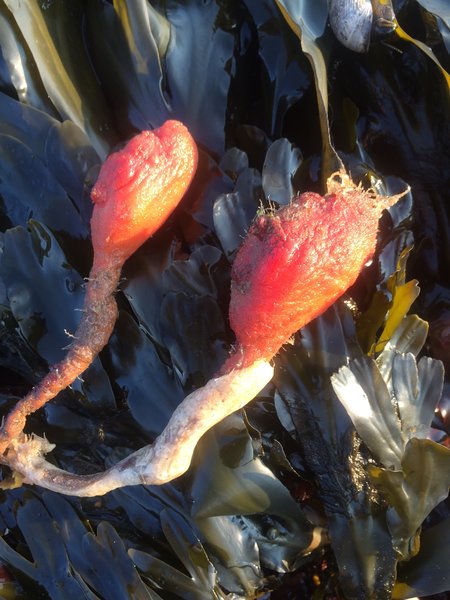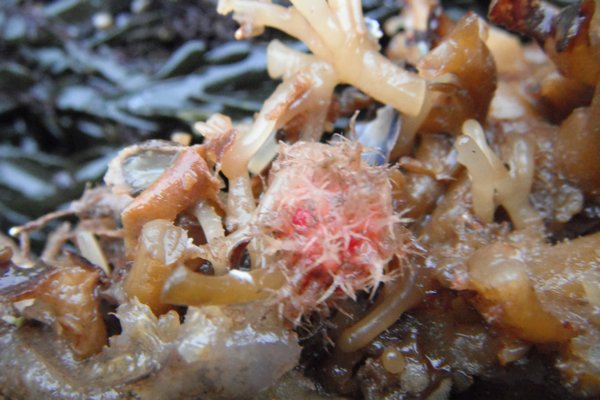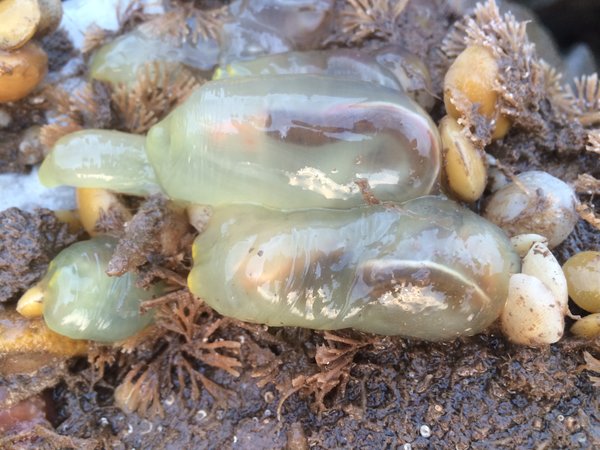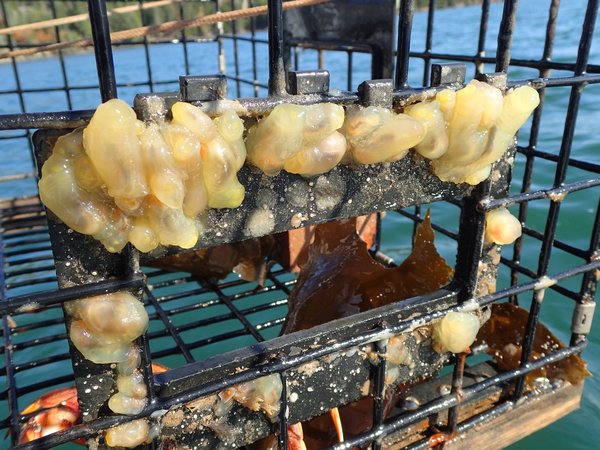 Image 1 of 2
Image 1 of 2

 Image 2 of 2
Image 2 of 2



Sea Potato (Boltenia ovifera)
Common name: sea potato, stalked tunicate
Scientific name: Boltenia ovifera
Locations: subtidal rocky bottoms, tidepools, low, low water on spring tides
Seasonality: available year round
Colors: mostly orange but can be reddish or just brown or tan
Size: 3" - 12"
Collected: by hand at low water or fishing boats or divers
Quantity: sold by the each
Common name: sea potato, stalked tunicate
Scientific name: Boltenia ovifera
Locations: subtidal rocky bottoms, tidepools, low, low water on spring tides
Seasonality: available year round
Colors: mostly orange but can be reddish or just brown or tan
Size: 3" - 12"
Collected: by hand at low water or fishing boats or divers
Quantity: sold by the each
Common name: sea potato, stalked tunicate
Scientific name: Boltenia ovifera
Locations: subtidal rocky bottoms, tidepools, low, low water on spring tides
Seasonality: available year round
Colors: mostly orange but can be reddish or just brown or tan
Size: 3" - 12"
Collected: by hand at low water or fishing boats or divers
Quantity: sold by the each

A bright orange sea potato found growing in a patch of sugar kelp.
Tidepool Tim says, “Sea potatoes are a unique sea squirt or tunicate in that they grow on a long stalk that is typically 3-4 times the size of the squirt itself. We find very tiny potatoes in some of our tidepools in very high current areas. Sometimes we will get them anchored in a kelp holdfast community. Speaking of communities, the sea potato's stalk serves as a place for other invertebrates to anchor themselves, feed on, or just cling to during the ebbing and flowing tides. We have found them literally covered in a fuzz of skeleton shrimp, sea lettuce, crabs, brittlestars, borer clams, and some bryozoans attached to them. Fishing boats tear large clumps of these from the sea-floor as they dredge for scallops and sea urchins in our bay. Sometimes these big clusters will wash up on the beaches here. Like any tunicate - this animal filters plankton from the seawater and strains out food particles passing them on to their primitive stomach and gut. As far as i know these have no commercial importance to humans as of yet.”





